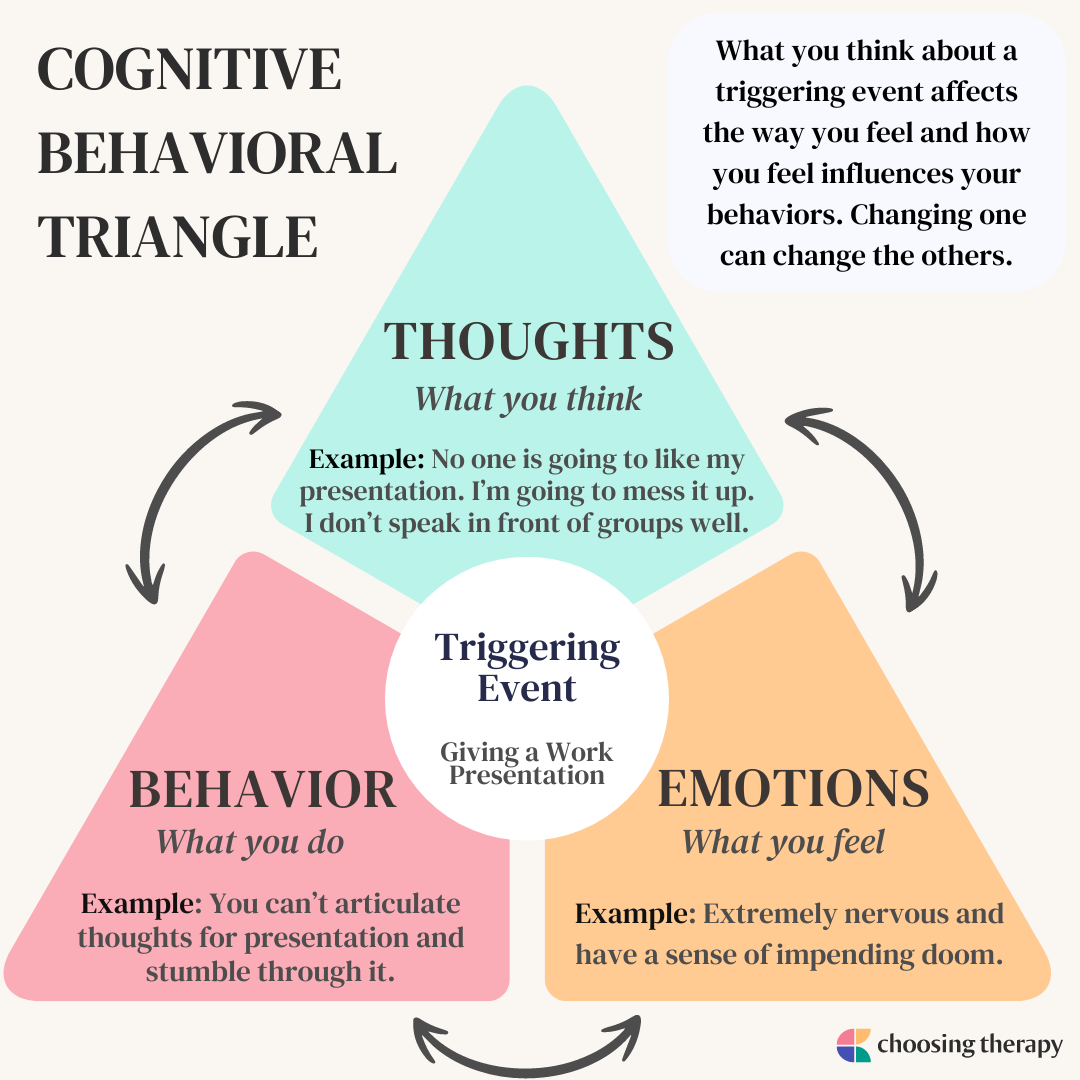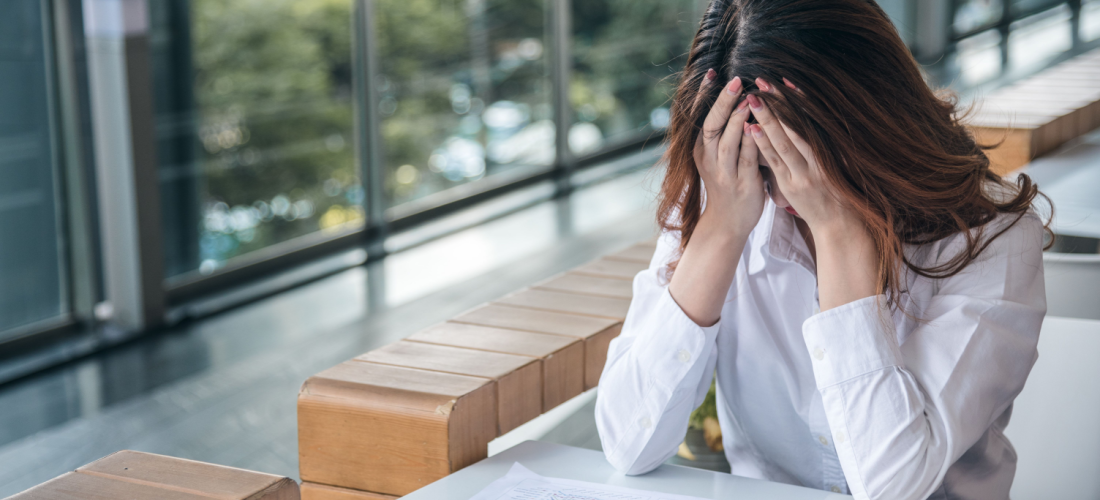Checking Out Different Techniques in Therapy for Anxiousness Problem for Long-term Adjustment
When tackling anxiety problems, it's necessary to check out a selection of therapy techniques. Each technique supplies unique understandings and devices to aid you handle your signs and symptoms effectively. You could discover that combining techniques can yield the very best results. Recognizing the nuances of these strategies is key to fostering long lasting change. What if the right combination could release a brand-new level of psychological well-being for you?
Understanding Anxiousness Conditions: A Quick Review
Anxiety disorders, which affect millions of individuals worldwide, can significantly affect everyday life. You could experience frustrating feelings of anxiety or worry that appear irrepressible. These sensations can cause physical signs like an auto racing heart, sweating, or even wooziness. Typical types of anxiousness problems include generalized anxiousness disorder, panic disorder, and social anxiety problem. Each has unique indications, however they all share a tendency to interrupt your regular and relationships.Understanding the source of your anxiousness is crucial. It may come from genes, mind chemistry, or life experiences. Acknowledging your triggers can help you manage your responses better. It is necessary to keep in mind that you're not alone in this struggle. Numerous individuals deal with similar obstacles, and looking for assistance is a strong action toward sensation better. By discovering anxiousness problems, you're currently on the course to understanding and managing your problem better.
Cognitive-Behavioral Therapy: Testing Adverse Idea Patterns
In Cognitive-Behavioral Therapy, you'll begin by determining the adverse idea activates that add to your anxiety. You'll work on replacing them with even more favorable choices when you recognize these ideas. With each other, you'll build effective coping methods to aid manage your anxiousness in everyday scenarios.
Identifying Negative Idea Triggers

Recognizing the particular triggers behind your negative ideas can be necessary in handling anxiousness when you run into minutes of distress. Begin by taking notice of circumstances that provoke feelings of worry or worry. Is it a congested room, an upcoming target date, or a conversation with specific people? Write these circumstances in a journal. This will certainly help you determine patterns in your reasoning. Also, notice physical sensations that accompany your unfavorable ideas, like an auto racing heart or rigidity in your chest. By determining these triggers, you acquire insight right into what's fueling your anxiety. Comprehending these connections is the initial step in testing those thoughts and ultimately regaining control over your emotional actions.
Changing Ideas With Positives
Testing negative idea patterns is a vital step in transforming your mindset and lowering stress and anxiety. You might commonly find on your own trapped in cycles of insecurity or devastating thinking. As opposed to letting these thoughts determine your feelings, method changing them with reasonable alternatives or favorable affirmations. For circumstances, when you think, "I can't handle this," change it to, "I can take care of obstacles one step each time." This easy change can significantly influence your emotion. Regularly determining and responding to these adverse thoughts aids develop a healthier internal dialogue. Bear in mind, it takes time and initiative, but regularly exercising this method can result in enduring modification, empowering you to deal with anxiousness with restored self-confidence and strength.
Structure Coping Approaches Together
Changing unfavorable thoughts is just the beginning of handling anxiety efficiently. To create long-term change, you require to build coping strategies that encourage you. Cognitive-Behavioral Therapy (CBT) helps you recognize and test those unhelpful idea patterns. Together, you and your counselor can check out exactly how these thoughts effect your sensations and behaviors.Start by creating sensible methods, like journaling or mindfulness workouts, that allow you to challenge anxiety head-on. When you encounter your fears slowly, you'll find out to react in different ways.

Mindfulness and Acceptance-Based Approaches: Cultivating Present-Moment Understanding
As you navigate the intricacies of anxiousness, including mindfulness and acceptance-based strategies can considerably boost your capability to grow present-moment understanding. By concentrating on the present moment, you'll locate that you can observe your ideas and feelings without judgment (Counseling services for anxiety). This method assists you recognize your anxiousness without feeling overwhelmed by it.Engaging in mindfulness exercises, such as deep breathing, body scans, or assisted reflections, enables you to ground on your own in your present experience. Acceptance-based techniques motivate you to welcome your feelings as opposed to battle versus them. They shed their power over you.Incorporating these techniques right into your everyday regimen can change just how you respond to stress and anxiety when you approve your feelings. You'll establish resilience and find out to navigate difficult circumstances with higher ease. Ultimately, cultivating present-moment recognition lays the structure for long-term change, encouraging you to lead a more fulfilling life
Direct Exposure Treatment: Facing Worries Gradually
Direct exposure treatment aids you face your concerns in a gradual means, making it less overwhelming. You'll learn methods to encounter anxiety-provoking situations step by step, while likewise developing coping strategies to manage your reactions. This approach empowers you to take control and reduce anxiety with time.
Gradual Exposure Strategies

When facing stress and anxiety, progressively challenging your worries can be a powerful means to reclaim control. This method, understood as progressive direct exposure, entails gradually subjecting yourself to the circumstances or items that cause your anxiety. Start with less challenging scenarios and progressively work your method up to more challenging ones. For example, if you hesitate of public speaking, you could start by speaking before a mirror, after that advance to sharing thoughts with a good friend, and eventually address a small team. Each action aids desensitize you to the fear, developing your self-confidence with time. Remember, it's important to speed on your own and commemorate tiny success as you relocate through this procedure, strengthening your capacity to take care of anxiety properly.
Structure Coping Techniques
Structure efficient coping techniques is necessary for managing anxiousness, especially as you confront your concerns slowly - Counseling services for anxiety. One effective technique is direct exposure therapy, where you start by facing your concerns in a controlled manner. Begin with less frightening circumstances and slowly work your means as much as even more tough situations. This progressive direct exposure assists desensitize you to stress and anxiety causes, making them less overwhelming.Incorporate leisure techniques, such as deep breathing or mindfulness, to relax your mind throughout direct exposure. Track your progress, celebrating little victories in the process to improve your self-confidence. Remember, it's okay to take your time; the goal isn't perfection however constant renovation. By developing these strategies, you'll equip yourself to navigate anxiety and embrace life more totally
Psychodynamic Therapy: Discovering Origin of Anxiety
Psychodynamic therapy discovers the subconscious mind, revealing the root triggers of your anxiety. By examining your ideas, feelings, and previous experiences, this technique assists you reveal underlying conflicts and unsolved problems that might contribute to your current anxiousness. You'll deal with a specialist to explore youth experiences, partnerships, and emotional patterns that shape your feedbacks today.As you gain insight into these much deeper layers of your subconscious, you'll begin to acknowledge how previous events affect your existing actions. This understanding can bring about catharsis, allowing you to process emotions you may have suppressed.Through the healing connection, you can also recognize defense reaction that may have developed gradually, supplying a clearer course to alter. Inevitably, psychodynamic treatment equips you with the tools to address your stress and anxiety at its core, advertising long lasting makeover in your psychological health.
Integrative and Alternative Techniques: Incorporating Techniques for Greater Efficacy
Incorporating various restorative strategies can boost your trip toward taking care of anxiousness much more efficiently. By read more integrating components from cognitive-behavioral therapy, mindfulness techniques, and holistic approaches, you can develop a customized method that addresses your unique demands. You might utilize cognitive-behavioral strategies to challenge adverse idea patterns while including mindfulness exercises to ground yourself in the existing moment.Additionally, exploring all natural techniques such as yoga or reflection can advertise leisure and minimize stress and anxiety signs. This blend allows you to establish better self-awareness and resilience.Experimenting with these varied approaches can help you discover what resonates most with you. Remember, it has to do with finding a synergy that works, as opposed to staying with a solitary strategy. This integrative technique not only provides instant alleviation yet likewise fosters long-term skills for managing anxiety, empowering you to reclaim control over your life.
The Role of Assistance Solutions: Building Durability Via Connection
While it could seem that managing anxiety is a solitary trip, having a strong support group can play an essential duty in your strength. Bordering on your own with compassionate close friends, family members, or support system develops a secure space where you can openly share your experiences and sensations. You advise on your own that you're not alone in this struggle.These partnerships use inspiration and can give useful coping approaches that have actually functioned for others when you attach with others. It's likewise a possibility to get point of view; friends can assist you see circumstances in different ways, decreasing feelings of isolation.Moreover, emotional support cultivates a sense of belonging, which can considerably ease stress and anxiety signs. By leaning on your support group, you can construct strength and deal with obstacles better. Bear in mind, connecting for help signifies toughness, and it can make all the difference in your trip towards handling anxiety.
Often Asked Concerns
What Are the Usual Signs of Anxiousness Conditions?
You might experience restlessness, fatigue, difficulty concentrating, impatience, muscle mass tension, and rest disturbances. Physical signs can include rapid heart beat, sweating, and trembling. Identifying these indications early can help you seek ideal support and treatment.
The Length Of Time Does Therapy Generally Last for Anxiety Conditions?
Therapy for anxiety problems generally lasts anywhere from a few weeks to several months. It actually relies on your individual demands, development, and the techniques your specialist uses to aid you handle your anxiety properly.
Can Drug Be Used Alongside Therapy for Anxiety?
Yes, drug can most definitely be used alongside treatment for anxiety. Incorporating both methods usually boosts treatment efficiency, aiding you manage symptoms while exploring underlying problems through therapy (Counseling services for anxiety). Constantly consult your doctor for individualized recommendations
Exist Self-Help Strategies for Managing Stress And Anxiety?
Yes, there are numerous self-help approaches for managing anxiousness. You can exercise mindfulness, take part in regular exercise, maintain a balanced diet plan, establish a routine, and use deep breathing methods to help in reducing anxiousness signs efficiently.
How Do I Know if I Required Expert Help for Anxiousness?
